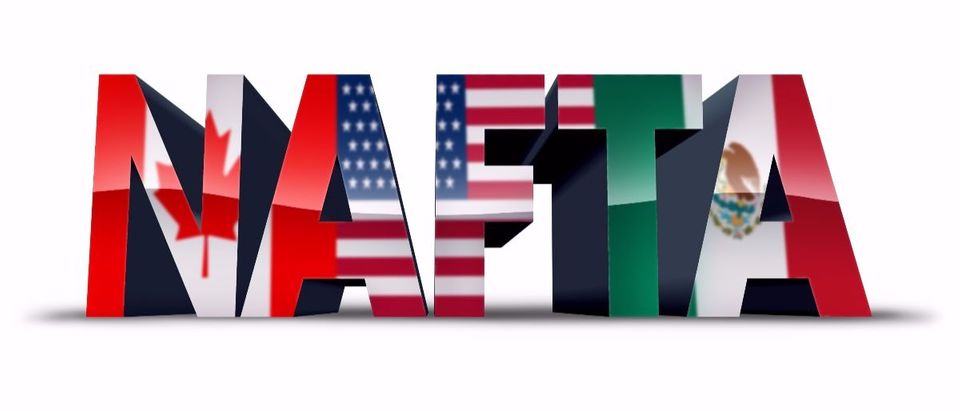With tax reform successfully completed, Congress and the Trump administration will now turn to other areas in which policies must be adjusted to bring about the revitalization of the American economy.
One of the most important of these is trade.
As a presidential candidate, Donald Trump turned the global establishment on its ear by promising to put an end to the Trans-Pacific Partnership, to renegotiate the North American Free Trade Agreement and to revisit other trade pacts that, in his judgment, did not work to the benefit of the United States or its workers.
Trump started the renegotiation process and, to the surprise of many, the roof did not fall in. If anything, the economy seems to be humming along better than at any time in recent memory.
There’s still a danger, however, that protectionism could become the basis of Trump’s trade policy and, moreover, that U.S. companies could manipulate the concerns he expressed about bad trade deals during the 2016 campaign to carve out self-serving protections to which they are not entitled.
In one recent case, Whirlpool, the home appliance manufacturing company, went before the U.S. International Trade Commission seeking protection under Section 201 of the Trade Act of 1974. The company claimed that an increase in a certain kind of washing machine imports had seriously damaged its domestic manufacturing.
On the surface, the complaint appears to be a request to sanction foreign companies seeking to game U.S. trade laws. However, the facts tell a much different story. Whirlpool holds a 35 percent share of the domestic residential market in washers (roughly the same as Samsung and LG combined). In reality, Whirlpool is asking for a government bailout disguised as a trade penalty because it doesn’t want to have to contend with more innovative competitors who are vying fairly for a share of the market.
On December 5, 2017 the International Trade Commission acted on the complaint, submitting to President Trump a proposal that recommended a 50 percent tariff on large residential washers, specifically those manufactured under the Samsung and LG brand names, as well as a quota on some parts critical to assembling machines in U.S. factories.
If Whirlpool prevails, consumers will experience immediate consequences. Prices will rise while the number of choices available for purchase will decline.
Even worse, around 2,000 new good-paying manufacturing jobs here in the United States may be adversely affected. Samsung is preparing to open a new integrated facility that will both manufacture products and conduct research and development operations in Newberry County, South Carolina. LG is opening a new facility in Clarksville, Tennessee.
Both facilities would be located in what might be called the heart of Trump country, but both companies have warned they may have to rethink their plans if the tariff proposed by the International Trade Commission is adopted, meaning the new jobs everyone is expecting may never materialize.
Whirlpool’s attempt to box out direct foreign investment and kill thousands of U.S. jobs is in direct conflict with Trump’s pledge to protect the interests of workers in the manufacturing sector. And, it should be noted, this is not the first time the company has acted as a job killer.
After acquiring Maytag in 2006, Whirlpool began closing factories and laying off workers until few of the formerly dozens the dotted the nation’s landscape were left. In Newton, Iowa, for example, about 2,000 hardworking, productive Americans were left jobless.
And what of Whirlpool if the president adopts what the International Trade Commission has recommended? In testimony before the commissions a company representative said the windfall that would result from the new levies would be used on “manufacturing and logistics enhancements” — meaning it’s going to buy machines to automate its production processes.
Swapping robots for American workers likely isn’t what the president had in mind when he talked about trade deals or “making America great again.” His vision, the one people voted him into office to carry out, is diametrically opposed to what Whirlpool is planning to do.
History has proven Section 201 safeguards often backfire and are a threat to the security of workers, consumer choice, and the economy overall.
To get to 4 percent annual growth or better Washington needs to pursue policies that enhance growth not ones that kill jobs. The president should say no to the International Trade Commission’s protectionist recommendation and instead say yes to jobs in South Carolina and Tennessee.
Peter Roff is a former senior political writer for United Press International.
The views and opinions expressed in this commentary are those of the author and do not reflect the official position of The Daily Caller.


